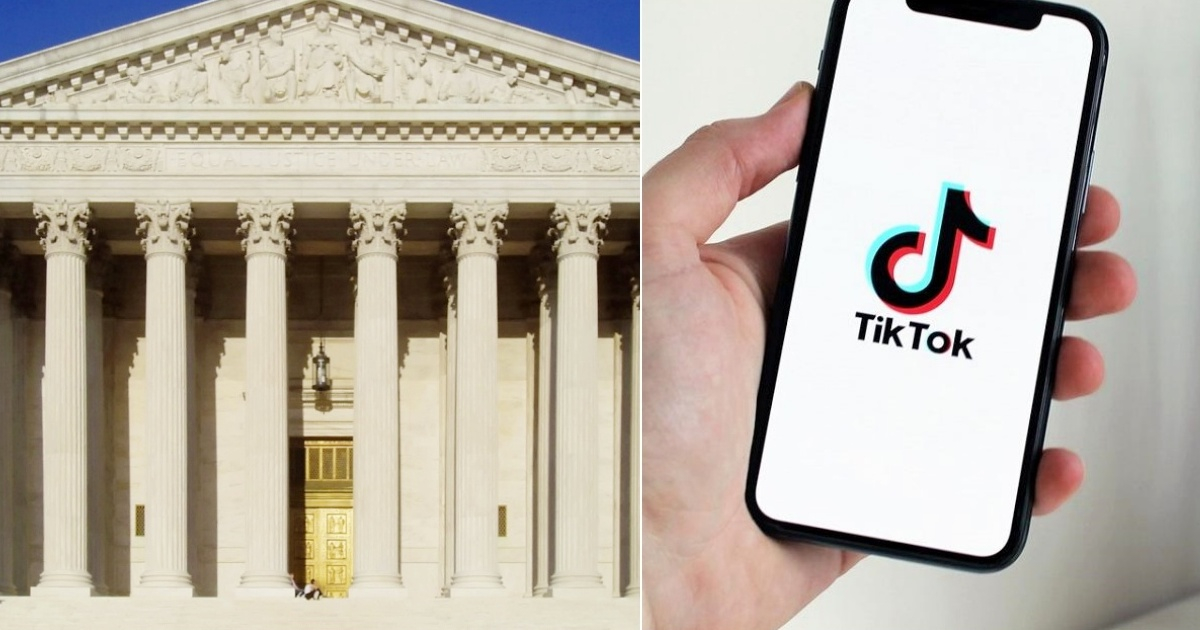The United States Supreme Court issued a ruling this Friday that supports a law potentially requiring TikTok to halt its operations in the country starting January 19. The social media platform, owned by Chinese company ByteDance, faces a complete ban if it doesn't sever ties with its parent company before the deadline.
The decision allows TikTok's 170 million U.S. users to keep the app on their devices, but as of January 19, they won't be able to receive updates or download it again. Experts suggest this could eventually render the platform inoperable.
With a conservative majority, the Supreme Court unanimously dismissed TikTok's arguments, affirming the law's constitutionality. The Court stated that "the national security risk posed by TikTok's connections to China outweighs concerns over limiting the free speech of the app or its users."
The Biden administration, alongside legislators backing the law, maintains that divesting from ByteDance is crucial to ensuring the security of American users' data.
Political Context: A Tense Presidential Transition
The fate of TikTok in the U.S. now largely hinges on the decisions of President-elect Donald Trump, who will take office on January 20, one day after the ban is set to take effect. During his first term (2017-2021), Trump attempted to ban TikTok citing national security concerns, but his current stance appears more conciliatory.
In a recent post on his social media platform, Truth Social, Trump mentioned discussing the issue with Chinese President Xi Jinping. The White House, led by outgoing President Joe Biden, has indicated that enforcing the law will be Trump's responsibility.
However, time is of the essence, and TikTok might choose to proactively suspend its operations before the law becomes effective. During Supreme Court arguments, TikTok's lawyer warned that the platform "will shut down" if it can't continue operating in the U.S.
The Origin of the Ban: National Security and China Tensions
The controversy surrounding TikTok began in April 2024 when Congress passed a bipartisan law giving ByteDance a nine-month deadline to sell its U.S. operations to an investor not deemed a "foreign adversary."
The legislation aimed to safeguard national security amid fears that the Chinese government could access American users' data or influence public discourse in the country. The law dictates that if ByteDance fails to complete the sale by January 19, TikTok will be banned.
Despite political pressure, ByteDance has opted to defend itself in court, arguing that a ban would violate the First Amendment of the U.S. Constitution, which protects free speech. A potential sale to a U.S. buyer doesn't seem imminent, although the law allows a 90-day pause on restrictions if progress towards a sale is shown, which remains uncertain.
Solicitor General Elizabeth Prelogar, who defended the law before the Supreme Court, suggested that the prospect of a sale may not necessarily prevent the ban. TikTok has repeatedly denied allegations of being a tool for the Chinese government. In a statement, the company argued that the law jeopardizes fair competition and technological innovation.
Trump and TikTok's Future
President-elect Trump now faces a complex decision. On one side, some prominent Republican senators demand stricter action against ByteDance, while Trump seems inclined to find a solution allowing the platform to continue, aware of its popularity among American users, including his 14.7 million followers on TikTok.
In a recent interview, Florida Congressman Mike Waltz, who will soon serve as the National Security Advisor at the White House, stated that Trump is exploring options to ensure TikTok can keep operating in the U.S. under secure conditions.
FAQs About TikTok Ban and Its Implications
Why is TikTok facing a ban in the United States?
TikTok is facing a ban in the U.S. due to national security concerns about its ties to China and the potential for the Chinese government to access American users' data.
What will happen to TikTok users in the U.S. after January 19?
After January 19, TikTok users in the U.S. will be able to keep the app on their devices but will not receive updates or be able to re-download it, which could eventually make the app inoperable.
Is there a possibility for TikTok to avoid the ban?
TikTok could avoid the ban if ByteDance successfully sells its U.S. operations to a non-foreign adversary investor before the deadline, though a sale does not appear imminent.
